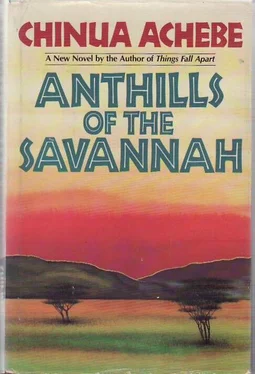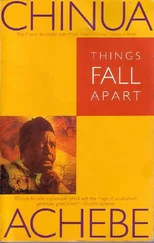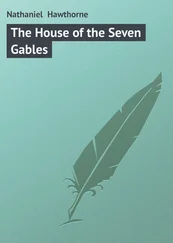Chinua Achebe - Anthills of the Savannah
Здесь есть возможность читать онлайн «Chinua Achebe - Anthills of the Savannah» весь текст электронной книги совершенно бесплатно (целиком полную версию без сокращений). В некоторых случаях можно слушать аудио, скачать через торрент в формате fb2 и присутствует краткое содержание. Жанр: Проза, на английском языке. Описание произведения, (предисловие) а так же отзывы посетителей доступны на портале библиотеки ЛибКат.
- Название:Anthills of the Savannah
- Автор:
- Жанр:
- Год:неизвестен
- ISBN:нет данных
- Рейтинг книги:4 / 5. Голосов: 1
-
Избранное:Добавить в избранное
- Отзывы:
-
Ваша оценка:
- 80
- 1
- 2
- 3
- 4
- 5
Anthills of the Savannah: краткое содержание, описание и аннотация
Предлагаем к чтению аннотацию, описание, краткое содержание или предисловие (зависит от того, что написал сам автор книги «Anthills of the Savannah»). Если вы не нашли необходимую информацию о книге — напишите в комментариях, мы постараемся отыскать её.
Anthills of the Savannah — читать онлайн бесплатно полную книгу (весь текст) целиком
Ниже представлен текст книги, разбитый по страницам. Система сохранения места последней прочитанной страницы, позволяет с удобством читать онлайн бесплатно книгу «Anthills of the Savannah», без необходимости каждый раз заново искать на чём Вы остановились. Поставьте закладку, и сможете в любой момент перейти на страницу, на которой закончили чтение.
Интервал:
Закладка:
'Tell me one thing you done read.'
'Ah. How I go begin count. The thing oga write too plenty. But na for we small people he de write every time. I no sabi book but I sabi say na for we this oga de fight, not for himself. He na big man. Nobody fit do fuckall to him. So he fit stay for him house, chop him oyibo chop, drink him cold beer, put him air conditioner and forget we. But he no do like that. So we come salute am.'
'Thank you very much,' said Ikem deeply touched. 'Can I offer you a drink of something?'
'Don't worry sir,' they said. They knew he was going out and must not delay him too much. It was then the real story of the visit came out. This man was not only the driver who drove Elewa home from here that evening over a week ago. He was by the strangest of coincidences the driver Ikem got into a bizarre contest with for a tiny space of road in a dreadful traffic jam. And now he had come, and brought a friend along, to make an apology!
'Oh my God. You don't owe me any apology. None whatsoever. I should apologize to you, my friend.'
Ikem walked up to him to shake his hand but he offered not one but both his hands as a mark of respect. The trade unionist did the same.
Ikem felt awkward, but also in a strange way, somehow elated. It was uncomfortable to be reminded that with his education and all that he could so easily get embroiled in a completely ridiculous fight with a taxi-driver. The elation came perhaps from this rare human contact across station and class with these two who had every cause to feel hatred but came instead with friendship, acting out spontaneously and without self-righteousness what their betters preach so often but so seldom practise.
Apparently it was the trade unionist who was in the car behind the car behind Ikem in the traffic and it was he who recognized Ikem as he turned into the Presidential Palace and promptly told the other; and the two decided on a visit of apology immediately. But it had taken them all this time to track down Ikem's address, only to discover that one of them had been there so recently. Na God him work, was the way he summed up the string of coincidences.
The trade unionist who had so far played only a supporting role to his friend now spoke up:
'I want answer that question which Madam ask my friend: to call one thing we done read for Gazette . Me self I fit call hundred things but time no dey. So I go talk about the one every taxi-driver know well well. Before before, the place where we get Central Taxi Park for Slaughterhouse Road de smell pass nyarsh. Na there every cattle them want kill come pass him last shit, since time dem born my grandfather. Na him this oga take him pen write, write, write sotay City Council wey de sleep come wake up and bring bulldozer and throway every rubbish and clean the place well well. So that if you park your taxi there you no fit get bellyache like before, or cover your nose with cloth. Even the place so clean now that if the akara wey you de chop fall down for road you fit pick am up and throw for mouth. Na this oga we sidon quiet so na him do am. Na him make I follow my friend come salute am. Madam, I beg you, make you de look am well. Na important personality for this country.'
'Make you no worry for that,' said his friend, 'Madam de look am well well. That day I come pick madam from here I think say them make small quarrel…'
'Shut your mouth. Who tell you say we de make small quarrel?'
'Madam, I no need for somebody to tell me when man and woman make small quarrel. When you see the woman eye begin de flash like ambulance you go know. But that day when I de vex because oga shine torch for my eye the same madam wey de grumble come tell me not to worry because the oga can talk sharp but na very kind man. No be so you tell me as we drive for night?'
Elewa nodded.
'But why you no tell me at the same time say na Editor of Gazette ?'
'Why I go tell you? And if I tell you wetin you go do with am? Illiteracy de read paper for your country?'
'Wonderful! You no see say because you no tell me, I come make another big mistake. If I for know na such big oga de for my front for that go-slow how I go come make such wahala for am? I de craze? But the thing wey confuse me properly well be that kind old car wey he come de drive. I never see such! Number one, the car too old; number two, you come again de drive am yourself. Wonderful! So how I fit know na such big man de for my front? I just think this I-go-drive-myself na some jagajaga person wey no fit bring out money to pay driver, and come block road for everybody. To God, na so I think.'
'Never mind,' said Ikem. 'That wahala for road no be such bad thing as he come make us friends now for house.'
'That na true, oga. Wonderful!'
As he drove to Mad Medico's place that afternoon Ikem turned over and over in his mind one particular aspect of the visit of the taxi-driver and his friend — how it seemed so important to him to explain his failure to recognize an admired 'personality' like Ikem; and how adroitly he had shifted the guilt for this failure round to the very same object of admiration for driving a battered old Datsun instead of a Mercedes and for driving with his own hands instead of sitting in the owner's corner and being driven. So in the midst of all their fulsome and perfectly sincere praise of Ikem those two also managed to sneak in a couple of body-blows.
Ikem could understand well enough the roots of the paradox in which a man's personal choice to live simply without such trimmings as chauffeurs could stamp him not as a modest and exemplary citizen but as a mean-minded miser denying a livelihood to one unemployed driver out of hundreds and thousands roaming the streets — a paradox so perverse in its implications as to justify the call for the total dismantling of the grotesque world in which it grows — and flourishes.
But even in such a world how does one begin to explain the downtrodden drivers' wistful preference for a leader driving not like themselves in a battered and spluttering vehicle but differently, stylishly in a Mercedes and better still with another downtrodden person like themselves for a chauffeur? Perhaps a root-and-branch attack would cure that diseased tolerance too, a tolerance verging on admiration by the trudging-jigger-toed oppressed for the Mercedes-Benz-driving, private-jet-flying, luxury-yacht-cruising oppressor. An insistence by the oppressed that his oppression be performed in style! What half-way measures could hope to cure that? No, it had to be full measure, pressed down and flowing over! Except that in dictatorships of the proletariat where roots have already been dug up and branches hacked away, an atavistic tolerance seems to linger, quite unexpectedly, for the stylishness of dachas and special shops etc. etc., for the revolutionary élite. Therefore what is at issue in all this may not be systems after all but a basic human failing that may only be alleviated by a good spread of general political experience, slow of growth and obstinately patient like the young tree planted by David Diop on the edge of the primeval desert just before the year of wonders in which Africa broke out so spectacularly in a rash of independent nation states!
When finally Ikem's thoughts broke out into words seeking Elewa's view on the matter her response was sharply and decisively on the side of basic nature and the taxi-drivers:
'I no tell you that before say this kind car wey you get de make person shame. To day he no get battery, tomorrow him tyre burst. I done talk say if you no want bring money for buy better car why you no take one good Peugeot from office as others de do and take one driver make he de drive am for you. Your own work different than other people? No be the same government work? Me I no understand am-o.'
ELEVEN
Интервал:
Закладка:
Похожие книги на «Anthills of the Savannah»
Представляем Вашему вниманию похожие книги на «Anthills of the Savannah» списком для выбора. Мы отобрали схожую по названию и смыслу литературу в надежде предоставить читателям больше вариантов отыскать новые, интересные, ещё непрочитанные произведения.
Обсуждение, отзывы о книге «Anthills of the Savannah» и просто собственные мнения читателей. Оставьте ваши комментарии, напишите, что Вы думаете о произведении, его смысле или главных героях. Укажите что конкретно понравилось, а что нет, и почему Вы так считаете.











